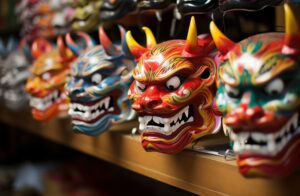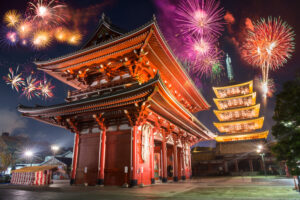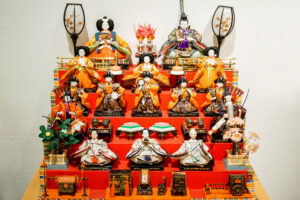Japan celebrates National Foundation Day (Kenkoku Kinen no Hi) on February 11, a day steeped in historical significance and cultural pride. This public holiday commemorates the founding of the nation, echoing the deep-rooted connections between Japan’s past and present. On this day, the Japanese reflect on their identity, heritage, and the historical figures who shaped their nation. As the country navigates a rapidly changing global landscape, National Foundation Day serves as a reminder of unity and cultural richness.
Japan Marks National Foundation Day on February 11 Each Year
National Foundation Day is observed every year on February 11, marking an essential occasion in Japan’s national calendar. Established as an official public holiday in 1966, the date is rooted in the ancient chronicles of Japan, particularly the "Nihon Shoki" (Chronicles of Japan). According to these texts, February 11, 660 B.C., marks the ascension of Emperor Jimmu, regarded as Japan’s first emperor. The day encourages citizens to reflect on the origins of their nation, and it is a time when many take a moment to contemplate their identity and cultural roots.
As a public holiday, National Foundation Day allows families and communities to come together to celebrate Japan’s rich history and cultural heritage. Schools, government offices, and many businesses close their doors, granting citizens the opportunity to participate in various festivities or simply enjoy a day off. The nationwide observance highlights the importance of national unity and instills a sense of pride among the Japanese people, emphasizing their shared history and values.
The significance of this day transcends mere celebration; it serves as a catalyst for discussions about Japan’s historical evolution and cultural legacy. Many people use this occasion to educate themselves about Japan’s past, prompting a national dialogue about the implications of history on contemporary society. As citizens gather to honor their country, they are also encouraged to look forward to the future, balancing respect for tradition with the demands of modern life.
In the bustling cities and serene countryside, National Foundation Day is marked by activities ranging from solemn ceremonies to festive gatherings. While the observance is historically significant, it has evolved over the years, adapting to contemporary societal values. The public holiday serves as a reminder that, despite the changing world, Japan’s foundational principles and cultural heritage remain steadfast.
The day also brings attention to the importance of historical education, as various institutions and organizations take the opportunity to present exhibitions, lectures, and performances that highlight Japan’s past. Thus, National Foundation Day is not just a day of remembrance, but also a platform for learning and engagement with history.
As Japan continues to navigate challenges both domestically and globally, National Foundation Day remains a vital observance that fosters a sense of belonging and community among its people.
Understanding the Historical Roots of National Foundation Day
National Foundation Day is deeply rooted in Japan’s historical narratives, primarily encapsulated in ancient texts. The celebration centers on the legendary figure of Emperor Jimmu, portrayed as a divine warrior. According to the "Nihon Shoki" and the "Kojiki" (Records of Ancient Matters), Emperor Jimmu descended from the sun goddess Amaterasu, anchoring the Japanese imperial lineage in divine origins. This mythological foundation provides a sense of continuity and legitimacy to the Japanese monarchy, which is among the oldest in the world.
The date of February 11 holds particular importance as it marks the year 660 B.C., traditionally recognized as the beginning of Japan’s imperial rule. This narrative has been instrumental in shaping Japan’s national identity and has influenced various aspects of its society, including politics, culture, and religion. Over the centuries, the story of Emperor Jimmu has become a cornerstone of Japanese culture, symbolizing the nation’s resilience and unity.
The ancient texts not only serve as historical accounts but also reflect the values and beliefs held by the Japanese throughout history. The themes of divine ancestry, harmony, and devotion to the land resonate deeply within the collective consciousness of the nation. National Foundation Day thus acts as a reminder for citizens to honor these foundational stories and the principles that have guided Japan through the ages.
In the face of modernization and globalization, the historical significance of National Foundation Day prompts discussions about the relevance of traditional narratives in contemporary society. While some may view the stories as antiquated, many Japanese people find comfort in the enduring nature of these myths, which provide a framework for understanding their identity in a rapidly changing world.
Moreover, the observance of National Foundation Day encourages citizens to explore and engage with their history, fostering a sense of pride and belonging. Schools often organize educational programs around this time, emphasizing the importance of history in shaping national identity and social cohesion. This engagement also cultivates an appreciation for the richness of Japan’s cultural heritage and its historical contributions to the world.
Thus, understanding the historical roots of National Foundation Day reveals not only the significance of Emperor Jimmu’s story but also the broader implications it holds for Japan’s evolving identity.
Celebrating the Birth of the Japanese Nation: A Brief Overview
The celebration of National Foundation Day is a multifaceted occasion that encapsulates various aspects of Japanese culture and tradition. On February 11, many citizens participate in ceremonies and events dedicated to honoring their nation’s founding. The day typically begins with national observance, where the Japanese flag is raised, and patriotic songs are sung, invoking feelings of unity and pride among the population.
In many communities, local governments organize formal ceremonies featuring speeches by dignitaries who highlight the significance of the day. These gatherings often include traditional performances, such as music and dance, which showcase Japan’s rich cultural heritage. Schools also play an integral role in the celebrations, with students often performing songs and skits that reflect their understanding of Japan’s history.
Families and friends gather to share meals and participate in festive activities, symbolizing a collective appreciation for their heritage. Some families choose to visit shrines or temples, where they pray for the prosperity and peace of the nation while reflecting on their own aspirations. This blend of public and private observance allows citizens to connect with their national identity on a personal level.
In addition to formal ceremonies, various cultural events take place across the country, including traditional arts and crafts fairs, exhibitions showcasing local history, and parades featuring floats adorned with national symbols. These festivities highlight Japan’s diverse cultural landscape and encourage participation from all demographics, fostering communal bonds.
The celebration of National Foundation Day also extends to social media, where many citizens share messages of pride and unity. This digital engagement not only reflects contemporary trends but also strengthens connections among younger generations who may be more distanced from traditional practices.
Overall, the celebration of National Foundation Day serves as a reaffirmation of Japan’s identity, instilling a sense of collective purpose and encouraging citizens to carry forward the values and traditions inherited from their ancestors.
The Myth of Emperor Jimmu: Japan’s Legendary Founder
Emperor Jimmu, believed to be the first emperor of Japan, occupies a central role in the nation’s history and mythology. According to Japanese legend, he was born from the union of a divine being, the sun goddess Amaterasu, and a human prince, thus embodying both celestial and earthly qualities. This divine ancestry not only legitimizes Jimmu’s rule but also establishes a connection between the imperial family and the deities, reinforcing the spiritual foundation of Japan’s political system.
The narrative of Emperor Jimmu is woven into the fabric of the "Nihon Shoki," which chronicles the early history of Japan. The story recounts Jimmu’s legendary journey from Kyushu to the Yamato region, where he is said to have established the first Japanese state. His exploits highlight virtues such as bravery, wisdom, and perseverance—qualities that have come to symbolize the Japanese spirit throughout history.
The myth of Emperor Jimmu is not merely a tale of individual greatness; it reflects the broader themes of harmony with nature and respect for the divine. His journey is often interpreted as a metaphor for the struggle against adversity and the importance of unity in building a nation. As Japan continues to face various challenges, the lessons drawn from Jimmu’s story remain relevant, inspiring generations to uphold the values of courage and resilience.
In modern Japan, the myth of Emperor Jimmu continues to be celebrated and acknowledged. Many citizens visit the Kōfuku-ji Temple in Nara, where a shrine dedicated to Jimmu is located, especially during National Foundation Day. These practices serve as reminders of the enduring legacy of the emperor and his significance in shaping national identity.
As Japan grapples with the complexities of a contemporary globalized society, the myth of Emperor Jimmu offers a lens through which to examine the nation’s values and aspirations. The story encourages dialogue about the importance of tradition in a rapidly changing world, prompting citizens to explore their roots while innovating for the future.
Thus, the myth of Emperor Jimmu not only serves as a historical account but also plays a pivotal role in shaping the collective consciousness of the Japanese people, reminding them of their rich heritage and the unbreakable ties that bind them to their past.
National Foundation Day: A Time for Reflection and Unity
National Foundation Day is not merely a celebration; it is also a time for reflection and introspection for the Japanese people. In a world characterized by rapid societal changes and global challenges, this day invites citizens to pause and consider the significance of their heritage. It encourages them to reflect on the values that have shaped their nation and to contemplate the path forward as a united society.
The observance of this day serves as a reminder of the importance of unity, particularly in a nation that has faced numerous challenges throughout its history. From natural disasters to economic upheavals, Japan has demonstrated resilience and solidarity in the face of adversity. National Foundation Day embodies this sense of togetherness, urging citizens to come together to strengthen their bonds and work towards a shared future.
In recent years, the theme of reflection has taken on new dimensions as Japan confronts contemporary issues, such as demographic shifts and environmental sustainability. This day provides an opportunity for citizens to engage in discussions about the future of their country, considering how to preserve their cultural identity while adapting to changing global dynamics.
Moreover, National Foundation Day serves as a platform for promoting peace and understanding both domestically and internationally. As Japan navigates its role on the global stage, the day encourages citizens to reflect on their responsibilities as members of the international community. It fosters a spirit of mutual respect and collaboration, advocating for a world in which nations work together to address shared challenges.
The introspective nature of National Foundation Day also resonates with Japan’s youth, who are increasingly seeking ways to connect with their cultural roots. Through educational programs and community engagements, young people are encouraged to explore Japan’s history and consider how they can contribute to the nation’s future. This generational engagement ensures that the values of unity, resilience, and cultural pride continue to resonate in an ever-evolving society.
Thus, as a time for reflection and unity, National Foundation Day plays a crucial role in shaping not only how Japanese citizens view their past but also how they envision their future together.
Traditional Ceremonies and Events Across Japan
National Foundation Day is marked by a variety of traditional ceremonies and events that take place across Japan, reflecting the nation’s cultural diversity and historical significance. Major cities and rural communities alike participate in observances that honor the founding of the nation, drawing crowds of both locals and tourists. These events range from formal ceremonies to lively festivals, allowing citizens to engage with their heritage in meaningful ways.
In Tokyo, the national ceremony is often held at the Nippon Budokan, a venue steeped in cultural significance. Government officials, dignitaries, and citizens gather to raise the Japanese flag and sing the national anthem, "Kimigayo." Speeches delivered during the ceremony emphasize the importance of unity, peace, and the nation’s commitment to progress. This formal gathering serves as the focal point for the nationwide celebrations, inspiring citizens to reflect on their shared values and collective aspirations.
Across the country, local governments organize various events that showcase traditional arts, crafts, and performances. In many regions, folk dances, music, and theatrical performances are held in public squares and community centers. These events not only celebrate Japan’s cultural heritage but also foster community engagement, drawing participants of all ages. Such gatherings provide opportunities for citizens to connect with their heritage while also promoting local artists and artisans.
In addition to performances, many shrines and temples across Japan hold special ceremonies to commemorate National Foundation Day. Citizens flock to these sacred sites to offer prayers for peace and prosperity. The Meiji Shrine in Tokyo, for instance, sees a significant influx of visitors who come to pay their respects and participate in traditional rituals, reinforcing the spiritual dimensions of the day.
Festivals also play a significant role in the celebrations, often featuring food stalls, exhibitions, and games that bring communities together. These events create a festive atmosphere, allowing families to enjoy quality time while engaging with their culture. The blending of tradition and modernity in these celebrations reflects how Japan honors its past while embracing the present.
Collectively, the traditional ceremonies and events during National Foundation Day serve not only as a means of celebration but also as a platform for reinforcing social ties and cultural identity. They remind citizens of the values that bind them as a nation, inspiring a sense of pride and continuity that resonates throughout the years.
The Role of National Foundation Day in Modern Japan
National Foundation Day plays a significant role in shaping contemporary Japan, serving as a touchstone for national identity and social cohesion. In an era characterized by globalization and rapid technological advancement, the day offers citizens an opportunity to reconnect with their cultural roots. It fosters a sense of belonging and pride in one’s heritage, encouraging people to reflect on their shared history and values.
In modern Japan, National Foundation Day also acts as a catalyst for discussions about national identity and cultural preservation. As the nation grapples with issues such as immigration, demographic decline, and cultural homogenization, this day prompts citizens to contemplate what it means to be Japanese in a globalized world. It encourages dialogue about the importance of nurturing and protecting their unique cultural practices while remaining open to new influences.
Moreover, National Foundation Day serves as a reminder of the need for unity in a diverse society. Japanese society is increasingly multicultural, and the observance of this day allows for the celebration of diversity within the national narrative. It highlights the importance of inclusion and understanding, reminding citizens that the strength of the nation lies in its ability to embrace various perspectives while remaining grounded in shared values.
The day also holds significance in the political arena, where leaders often use the occasion to reaffirm commitments to the national interest. Speeches delivered during National Foundation Day ceremonies frequently focus on themes of peace, security, and cooperation, underscoring Japan’s role in the international community. This aligns with the country’s evolving foreign policy and reflects its aspirations toward a more proactive stance on global issues.
As Japan navigates the challenges posed by an aging population and economic uncertainties, National Foundation Day serves as a moment of reflection on the nation’s future. It encourages citizens to engage in conversations about sustainability, technological innovation, and social responsibility. The observance fosters a sense of collective responsibility, reminding citizens that they share a role in shaping the trajectory of their nation.
In conclusion, National Foundation Day is more than a historical commemoration; it is a vital fixture in modern Japan that influences national identity, societal values, and the discourse surrounding the nation’s future.
How Japan’s Youth Engage with National Foundation Day
The engagement of Japan’s youth with National Foundation Day is increasingly significant, as younger generations seek to forge their identities within the context of tradition and modernity. Many young people view this day as an opportunity to learn about their cultural heritage, prompting them to explore their historical roots and the stories that define their nation. This engagement manifests in various ways, from educational programs to social media campaigns, reflecting a blend of traditional values and contemporary expression.
Educational institutions play a crucial role in fostering this connection among youth. Schools often organize activities and discussions surrounding National Foundation Day, where students learn about the significance of the holiday and the history of Emperor Jimmu. These programs encourage critical thinking about Japan’s past and its implications for the future, instilling a sense of pride in their national identity.
In recent years, social media has become a powerful platform for young people to express their thoughts and values related to National Foundation Day. Many use platforms like Twitter, Instagram, and TikTok to share messages of unity, cultural pride, and personal reflections. This digital engagement serves to amplify the voices of youth while connecting them with peers both nationally and internationally, fostering a sense of global citizenship.
Cultural events organized for National Foundation Day also attract young participants, who often take on leadership roles in performances and community activities. This involvement not only allows them to engage with traditional arts and crafts but also empowers them to lead and innovate within their communities. By participating in these events, youth contribute to the vibrancy of Japan’s cultural landscape, demonstrating that tradition can coexist with modern expressions of identity.
The engagement of Japan’s youth with National Foundation Day also extends to volunteerism and community service. Many young people choose to spend the day helping out in local festivals, organizing educational events, or participating in clean-up activities. This sense of responsibility reflects an understanding of the importance of community and collective action, aligning with the values of unity and resilience celebrated on this day.
Ultimately, the involvement of youth in National Foundation Day celebrations signifies a dynamic interplay between tradition and modernity in Japan. As they engage with their cultural heritage, young people play a vital role in shaping the future of the nation, ensuring that the values and lessons of the past continue to resonate in an ever-changing world.
Cultural Significance: Festivals and Parades Nationwide
National Foundation Day is characterized by a rich tapestry of cultural significance, as festivals and parades unfold across Japan, reflecting the nation’s diverse heritage. These events serve as a celebration of unity and community, allowing citizens to express their pride in their culture while honoring their history. Each region adds its unique flavor to the observance, showcasing the local customs, traditions, and artistry that form the fabric of Japanese society.
Festivals during National Foundation Day often incorporate elements of traditional Japanese culture, including music, dance, and culinary delights. In various cities, local artists and performers come together to showcase their talents in vibrant displays of color and sound. These celebrations not only entertain but also educate younger generations about the importance of cultural preservation, reinforcing the connection between the past and present.
Parades, often featuring floats adorned with national symbols, wind through the streets of cities and towns, drawing families and tourists alike. Participants in these parades may dress in traditional attire, such as kimono, or don costumes representing historical figures and regional folklore. The festive atmosphere fosters a sense of camaraderie among participants and spectators, emphasizing the collective joy of celebrating Japan’s heritage.
In addition to large-scale events, smaller community gatherings also play a vital role in the observance of National Foundation Day. Local neighborhoods organize activities that engage residents and promote a sense of belonging. These gatherings encourage intergenerational participation, allowing grandparents and parents to share stories of their own experiences during National Foundation Day, thus passing down traditions and values.
The integration of modern elements into these festivals has also become increasingly prevalent. Many localities incorporate contemporary music and performance art into the celebrations, appealing to younger audiences and ensuring that the traditions resonate with the current generation. This blending of old and new highlights the adaptability of Japan’s cultural expressions, ensuring their relevance in a rapidly changing world.
Overall, the cultural significance of the festivals and parades held on National Foundation Day enriches the observance by fostering a sense of pride, unity, and collective identity among the Japanese people. These celebrations serve as a reminder of the diversity within Japan and the importance of honoring and preserving the nation’s cultural heritage.
Reflecting on Japan’s National Identity and Heritage
National Foundation Day provides a platform for reflecting on Japan’s national identity and the heritage that shapes it. As citizens come together to celebrate, they engage in discussions about what it means to be Japanese and the values that define their society. This reflection is essential in a world where








